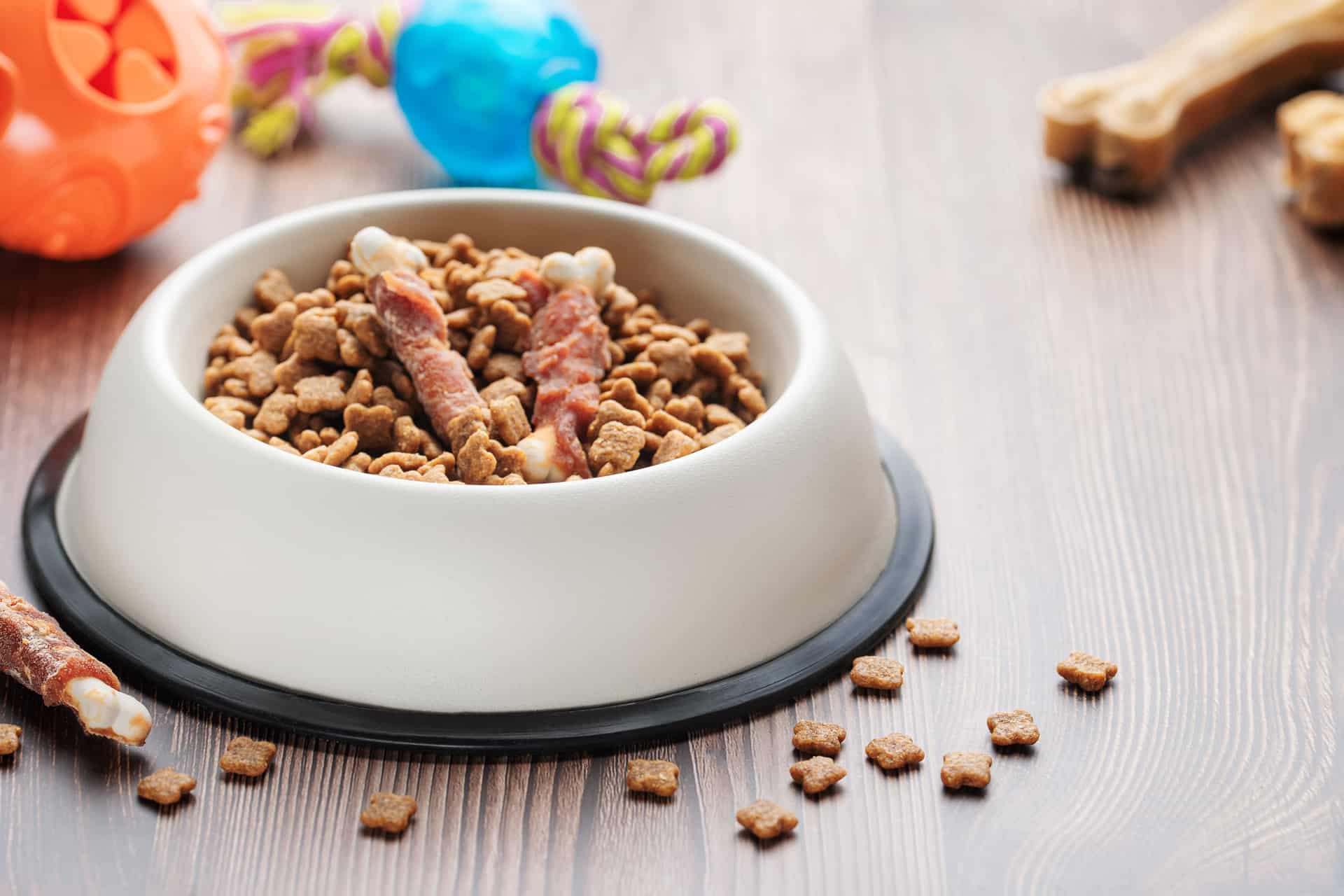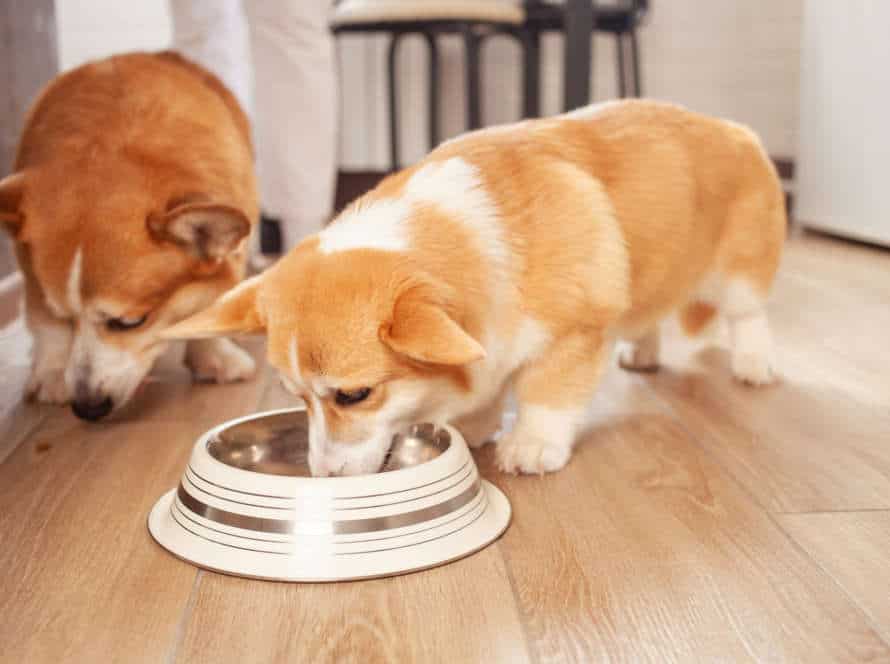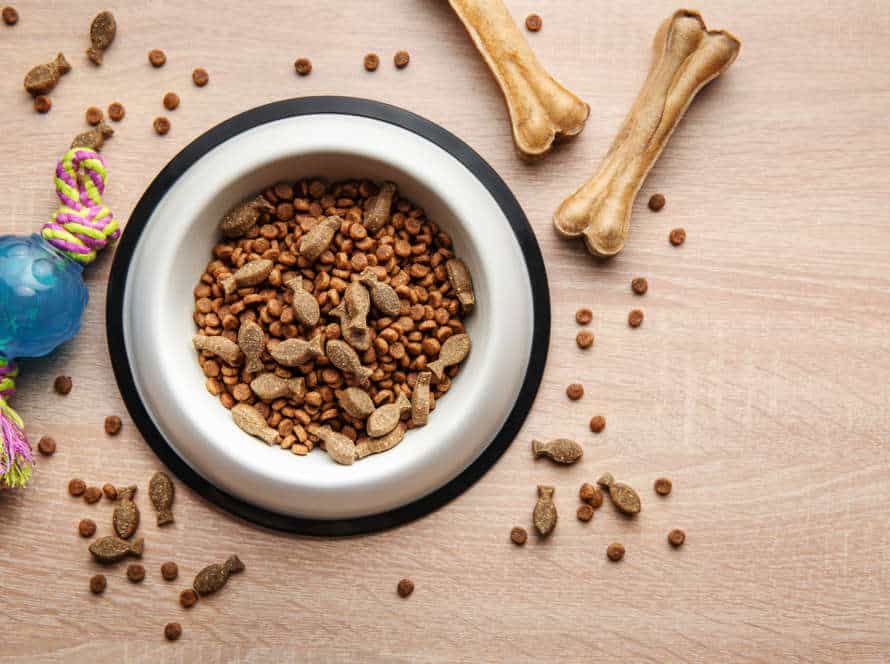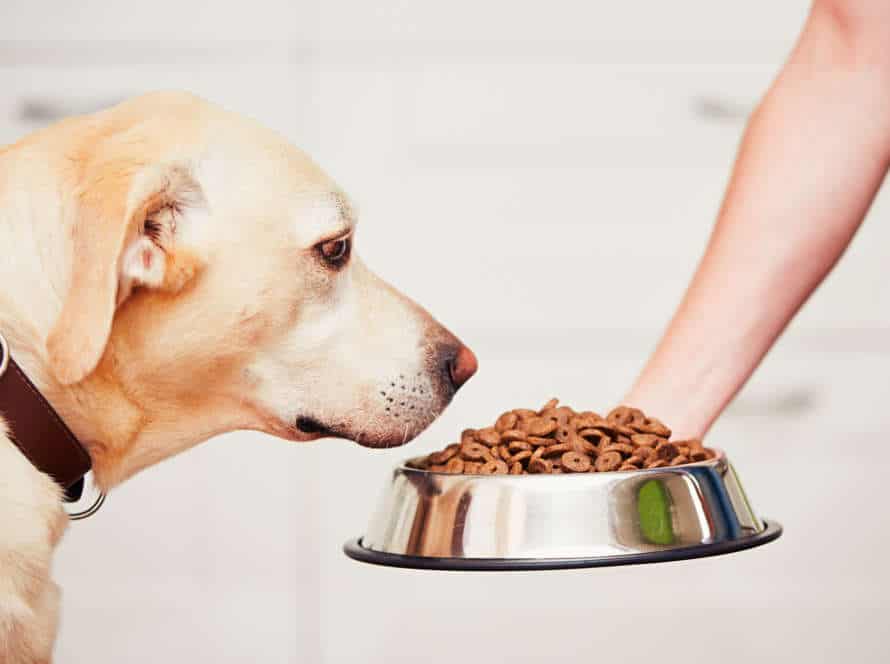Understanding the Nutritional Requirements of Dogs
Are you a pet owner? It’s essential to know the proper nutrition for your pup. This article will help you understand what your doggy needs to stay healthy. We’ll break it down, so you can give your four-legged friend the best care.
What food is right? What are the necessary nutrients? Discover the answers here!
Importance of a Balanced Diet for Dogs
Provide a balanced diet for your furry pal to stay healthy, happy, and active. Dogs are omnivores, so their diet needs to include protein, fats, carbs, vitamins, and minerals.
Here’s what you need to know:
- Proteins: Essential for muscle growth, repair, and maintenance. Should be 25% of the diet.
- Fats: Provide energy, keep skin and coat healthy, and support brain function. 10-15% of the diet.
- Carbs: Give energy, fiber, and aid digestion. 30-70%, depending on activity and health.
- Vitamins/Minerals: Important for overall health.
Check with your vet for a diet plan that meets all your pup’s nutritional needs!
Pro Tip: Avoid toxic foods like chocolate, onion, garlic, raisins, grapes, and avocado.
Essential Nutrients for Dogs
Dogs need a balanced and nutritious diet with essential nutrients for their health and well-being. These include:
- Protein – for building and repairing tissues, skin and coat.
- Carbs – for energy and digestion.
- Fat – for energy and vitamin absorption.
- Vitamins A, B, D – for immune system, vision and bones.
- Minerals – for strong bones, teeth and nerve/muscle function.
- Water – for hydration and body functions.
It’s important to give your dog a good quality, complete and balanced commercial food that meets all these nutritional needs. Pro Tip: Ask your vet what diet is good for your dog’s breed, age and activity level.
Macronutrients and Micronutrients
To keep your furry pal healthy and happy, it’s essential to give them a diet that meets their nutritional needs. They need two types of nutrients: macronutrients and micronutrients.
Macronutrients are proteins, fats, and carbs. Proteins help build and repair muscles and tissues. Fats give energy and help cells grow. Carbs give energy and fiber for digestion.
Micronutrients are minerals and vitamins. Vitamins aid growth and development. Minerals aid bone health, muscle function, and fluid balance.
Make sure your dog has a balanced and varied diet of high-quality proteins, healthy fats, and vitamins/minerals. Always talk to a vet and watch your pup’s weight and overall health.
Pro Tip: Don’t feed your dog table scraps; many human foods can be toxic and cause malnutrition.
Commercial Dog Food
Commercial dog food is the popular way to feed pooches! It’s got the ideal mix of proteins, fats, carbs, and other nutrients. Plus, it’s super convenient and comes in many yummy flavours. But, when picking commercial dog food, there are some important things to think about. Let’s go through them now!
Evaluating the Quality of Commercial Dog Food
Evaluating the quality of commercial dog food is a must when it comes to providing the right nutrition for your furry pal. Here are some tips on selecting the highest quality:
- Read the ingredients list closely. Select one that has good sources of proteins and veggies first.
- Check the label for the AAFCO (Association of American Feed Control Officials) statement. This confirms that the food meets minimum nutritional needs for dogs.
- Examine the brand’s credibility and recall history.
- Look for a food that has undergone feeding trials, which are more reliable than nutrient analysis alone.
- Avoid ones with artificial colors, flavors, and preservatives.
- Choose foods with natural preservatives, such as vitamin C, tocopherols (vitamin E), and rosemary extracts.
Pro tip: Consult your vet to determine a food that meets your pet’s exact dietary needs.
Understanding Ingredients on Dog Food Labels
As a responsible pup parent, it’s vital to know what’s in your dog’s food. This lets you make wise choices that ensure proper nutrition and health. Here are key ingredients to look for:
- Protein source: Look for high-quality meat like chicken, beef, or fish. Avoid meat by-products.
- Carbohydrates: Include carbs in moderation. Opt for sweet potatoes or brown rice, not fillers like corn or wheat.
- Fats: Fats are an essential part of your dog’s diet. Find healthy fats like fish oil or chicken fat.
- Added vitamins and minerals: A balanced diet needs added vitamins and minerals.
By understanding ingredients, you can help your pup live a healthier life.
Different Types of Commercial Dog Food
As a pup parent, picking the correct type of commercial doggy chow can be overwhelming with so many varieties out there. Here are some of the most popular ones:
- Dry Dog Food: This is the most common and affordable option. It has low moisture content, and the ingredients – grains, meat, and vegetables – are baked to make small kibble pieces.
- Semi-Moist Dog Food: This one has more moisture than dry food. It’s soft and chewy but may contain more artificial flavors and preservatives.
- Canned Dog Food: This is a wet food option that has more moisture than dry or semi-moist food. It is made from meat, veg, and grains and is packed into cans or pouches.
- Raw Dog Food: This is made of uncooked or lightly processed meat, fruits, and veg. It is pricier and needs proper handling and storage.
It is important to pick a food that meets your pup’s nutritional needs and likes, as each type has its pros and cons.
Homemade Dog Food
Making pup food at home? It can be daunting! You want the best nutrition for your pup, and making your own food gives you more control. Let’s look at the pros and cons – plus some delicious recipes.
Benefits and Risks of Homemade Dog Food
Homemade dog food has pluses and minuses. Each pet owner should know about them to decide properly about their four-legged friend’s nutrition.
Benefits:
- You choose ingredients: Making pet food at home allows you to decide the quality and quantity of ingredients. Skip preservatives, additives, and fillers.
- Healthy diet: If you pick the right ingredients, homemade food can be nutritious and complete.
Risks:
- Nutrition imbalance: Not mixing protein, fat, and carbs correctly may lead to an imbalanced diet.
- Foodborne illness: If you don’t prepare or use ingredients in a safe way, your pet could fall ill with Salmonella or E. coli.
Pro tip: Consult a vet or a nutritionist before making food for your pet to make sure it meets all needs.
Preparing Balanced Homemade Dog Food
Feeding your pup a balanced, homemade meal is a great way to ensure they get the nutrients they need for good health. Follow these steps:
- Work out your dog’s nutritional needs based on their breed, size, and age.
- Use proteins, fibers, vitamins, and minerals found in lean meats, fish, vegetables, and fruits.
- Stick to dog food recipes to make sure the meal meets your pup’s nutritional needs.
- Store and prepare the food safely, to avoid contamination or spoilage.
Pro tip: Before making homemade dog food, involve your vet to make sure it meets your pup’s needs.
Recipes for Homemade Dog Food
Creating homemade dog food is a great way to make sure your pup gets the right nutrients. Here are two easy and healthy recipes:
- Chicken & Rice:
Ingredients: 1 cup cooked brown rice, 1 pound cooked chicken breast, 1 tbsp olive oil, 1/2 cup peas, 1/2 cup shredded carrots.
Directions: Mix all in a bowl. Put in an airtight container and store in fridge for up to 5 days. - Beef & Sweet Potato:
Ingredients: 1 pound ground beef, 1 sweet potato, 1/2 cup green beans, 1/2 cup peas.
Directions: Brown beef in skillet. Microwave sweet potato for 5-7 mins, add to skillet along with beans and peas. Cook ’til veggies are tender. Cool & serve.
Pro Tip: Ask your vet about homemade dog food recipes to guarantee the right nutrients.
Feeding Schedule and Portion Control for Dogs
Fuelling your pet pooch is a must! As a pet parent, it’s vital to understand when and how much to feed them. Here’s the lowdown on dog diets: know when to give them meals and how much to put in their bowl. Feeding your pup correctly is key to keeping them healthy and happy.
Age and activity level of your dog
Age and activity level are both essential for a feeding schedule and portion control plan that provides the correct nutrition for your pup.
Puppies have different dietary needs than seniors, so their diet must be adjusted. An active dog needs more fuel than a lazy one.
Here are some tips:
- Pups must eat three to four times a day.
- Adults can eat once or twice a day, depending on size and activity.
- Seniors should eat smaller meals often to avoid digestion issues.
- Proper portion control is essential for weight and health. Amount depends on age, weight, breed, and activity level.
Tip: Talk to your vet to get the right feeding schedule and portion size.
Calculating the Right Portion Sizes for Your Dog
Figuring out the correct amount of food for your pup can be tricky. But it’s key to their health and happiness. Here are some tips:
- Start with the serving size on the dog food packaging.
- Adjust the portion depending on your pup’s size, age, breed and activity level.
- Think about their metabolism, how well they digest, and their weight goals.
- Split the daily portion into two or three meals so they don’t overindulge.
- Track their weight and make changes to the portion if needed.
- Don’t forget: Provide fresh, clean water with every meal.
Bonus: Talk to a vet or nutritionist to get tailored advice for your pup’s diet.
Frequency and Timing of Dog Meals
Feeding your pup accurately is vital for their health. As an owner, you should know when & how often to feed them.
- Puppies need more meals than adult dogs, since they have faster metabolisms. It’s suggested to give them 3-4 small portions daily.
- For adult dogs, depending on size, feed them 1-2 times a day. Leave 12 hours between meals for efficient digestion.
- Timing is essential too. Feed them one to two hours before exercise for proper digestion.
- Portion control is essential to prevent obesity. Ask your vet to determine how much food your pup needs each day based on breed, age & weight.
Remember, dogs like consistency – so create a regular eating plan for their wellbeing.
Special Diets for Dogs
Pups are distinct in their own way. Their diet varies too – depending on their wellness and dietary requirements. It could be low-fat, grain-free, or made for a particular condition. Knowing these special diets for dogs can ensure you provide your furry pal with the best nutrition possible.
Specialty Diets for Dogs with Medical Conditions
Specialty diets for dogs with medical conditions are important for dog owners to know about. Here are some common ones:
- Hypoallergenic Diet: For dogs with food allergies or sensitivities. It includes novel proteins like venison and duck, and novel carbs like sweet potato and quinoa.
- Low-Phosphorus Diet: For dogs with kidney disease. It has restricted amounts of protein and phosphorus.
- Low-Fat Diet: For dogs with digestive issues, it reduces the fat in their diet. It may have easily digestible carbs like rice and oatmeal.
- Weight Management Diet: For overweight or obese dogs. It contains higher fiber, plus lower fat and calories.
Pro Tip: Always consult a vet before starting your pup on any specialty diet. They can help decide which one is best for your dog’s medical condition.
Raw Food Diet for Dogs
Dogs can benefit from a raw food diet. This is based on what their wild ancestors ate. It includes raw meat, bones, fruits and veg. No processed or cooked food.
Here are 3 of the benefits:
- Better digestion due to enzymes in the raw food. Easier to absorb nutrients.
- Healthier coat and skin thanks to omega-3 and omega-6 fatty acids. Also reduces skin allergies.
- Dental health improved by the scraping action of raw bones.
Remember: it’s important to get advice from a vet before making any changes.
Vegetarian and Vegan Diets for Dogs
Vegan and veggie diets for dogs are trendy among pet owners who live a plant-based life. But it’s essential to know that dogs have different nutrition needs than us humans.
Dogs are carnivores, so their diet should be mostly animal protein. It’s possible to feed them veg or vegan diets, but it requires careful planning and monitoring to make sure your pup gets all the nutrients they need.
Veg sources like lentils, chickpeas, and quinoa can be included, while vegan sources might be soy, seitan, or legumes. But feeding your pup a plant-based diet without help from a pro can have risks and cause health issues.
It’s very important to talk to a vet before making big changes to your pup’s diet, so they stay healthy and nourished.
Frequently Asked Questions
1. What should I feed my dog?
It’s important to feed your dog a balanced diet that includes protein, fats, carbohydrates, vitamins, and minerals. Choose a high-quality commercial dog food or consult with a veterinarian for a custom-built meal plan.
2. Can I feed my dog human food?
Some human foods, such as plain cooked meats and vegetables, can be healthy treats for dogs. However, many human foods can be harmful or even toxic to dogs. It’s best to stick with vet-approved dog food and treats.
3. How often should I feed my dog?
The frequency of dog feedings will depend on your dog’s age, breed, activity level, and health status. Puppies typically require three to four meals per day, while adult dogs may do well with one or two meals per day.
4. Should I be concerned about my dog’s weight?
Yes. Obesity is a common problem among dogs and can lead to numerous health issues. Consult with a veterinarian to determine your dog’s ideal weight and feeding regimen.
5. Are there any foods to avoid feeding my dog?
Yes. Foods that are dangerous or toxic to dogs include chocolate, grapes, raisins, onions, garlic, avocados, alcohol, and caffeine. Consult with a veterinarian for a complete list of foods to avoid.
6. Can I supplement my dog’s diet with vitamins or minerals?
Before supplementing your dog’s diet, consult with a veterinarian. Most dogs receive all necessary nutrients from a balanced commercial dog food or a custom-built meal plan.







